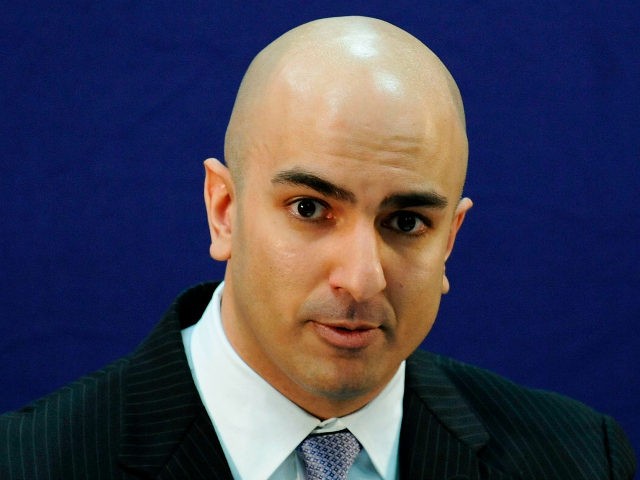Neel Kashkari has become the Federal Reserve’s foremost skeptic of the notion that the U.S. is experiencing a severe labor shortage.
Kashkari, who is the president of the Minneapolis Fed, points to the lack of significant upward pressure on wages as evidence debunking the claims that the U.S. lacks workers. The logic is pretty simple: if the supply of labor is so limited relative to demand, the price of labor should be swiftly rising.
The fact that the price of labor is not rising much suggests that perhaps labor is not in as short supply as some employers and special interest lobbying groups claim. Maybe these claims of a labor shortage are just covers for those who want U.S. labor costs to fall, which would raise profits in the short term.
Another theory is that labor prices have become stuck at low levels because employers, after so many years of high unemployment and minimal wage pressure, have become reluctant to raise wages. The tool of offering higher wages to attract new workers has fallen out of the toolkit of many American businesses and no one noticed because it wasn’t needed for so long. But now that there are far fewer unemployed people desperately hoping for a job, employers do not know where to turn to find new employees. They’ve forgotten how to poach workers from competitors with higher wages.
On Tuesday, Kashkari returned to this theme in a series of tweets that lay to waste a Wall Street Journal article pointing to “historic, severe shortages” of labor.
This @wsj article captures the extreme emotions around the labor market: "historic, severe worker shortages." Sounds like a real crisis. Is it?
(thread) https://t.co/x3mtKfHKS8— Neel Kashkari (@neelkashkari) April 17, 2018
By several measures, wage growth remains muted (around 2.7%) – much lower than historical episodes with "extreme worker shortages." Usually the price is the best indicator between supply and demand. Price growth for labor is low. Where's the "extreme shortage?" (2)
— Neel Kashkari (@neelkashkari) April 17, 2018
Interestingly, the price of oil has doubled over the past few years from around $30 to $60. I haven't heard anyone declare oil "shortage." Why not? Should we tap the Strategic Petroleum Reserve? No because its the price responding to supply and demand. (3)
— Neel Kashkari (@neelkashkari) April 17, 2018
Our economists @MinneapolisFed always remind me about "sticky prices" – firms are reluctant to lower prices and wages in recessions. These hyperbolic headlines remind me the reluctance to adjust prices is in both directions. (5)
— Neel Kashkari (@neelkashkari) April 17, 2018
Actually – one more: my take from the article is that young people have more choices today than they did 5 or 10 years ago. That's great. (really end)
— Neel Kashkari (@neelkashkari) April 17, 2018
Kashkari, who worked at Goldman Sachs before joining the Bush Administration’s Treasury Department, may seem like an unlikely ally to the Trumpian cause of improving the lot of America’s forgotten working class. But he also appears to be the strongest ally of that cause at the Federal Reserve.

COMMENTS
Please let us know if you're having issues with commenting.